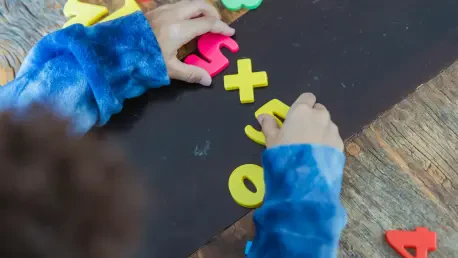A viral classroom photo depicting the chaos of a young child’s tantrum has sparked a wide-reaching discussion on the challenges educators face in early childhood settings. Strewn with toys, books, and blocks, the image captures the everyday turmoil teachers endure and paints a vivid picture of their demanding work environment. This incident has initiated conversations about modern parenting styles and their possible contributions to classroom issues. As some scrutinize contemporary parenting methods, others point to the insufficient resources and lack of support teachers receive when managing such classroom disruptions. The emotional and logistical burdens of teaching young children have thus become a focal point for reevaluating and enhancing supportive measures in education systems.
Unpacking the Viral Phenomenon
Reflections on Parenting Approaches and Educational Challenges
With the photo amassing over 65,000 reactions and 3,000 comments, it has profoundly resonated with educators and parents, highlighting the often-misunderstood emotional toll that teaching exerts. This reaction stems in part from concerns about whether current parenting approaches may inadvertently exacerbate classroom difficulties by not adequately preparing children for the structured environment of a school. Debates around parenting often lead to questions about discipline, attention spans, and children’s autonomy, which directly influence how children interact with their peers and teachers. When a child’s behavior becomes unmanageable, it often reflects broader influences, such as family dynamics, inadequate sleep, and societal pressures, which can profoundly affect a child’s ability to regulate emotions.
Educational settings bear the brunt of these complexities, emphasizing the dire need for holistic engagements that include parents, teachers, and the community. The issue extends beyond the classroom, requiring a cooperative effort to address areas where children might need additional support. By taking a broader view of a child’s environment, schools and guardians can create nurturing spaces that encourage better emotional development and behavioral outcomes. This approach acknowledges the multifaceted nature of childhood behaviors, urging a shift towards strategies that encompass the varied influences impacting a child’s school life.
Assessing the Teacher’s Emotional Burden
Educators frequently face emotional exhaustion and stress, given the demanding nature of their roles and the limited support often available. The viral photo underscores an everyday reality where insufficient resources in schools compound the challenges of handling emotional outbursts among young learners. Teachers often find themselves inadequately equipped to manage these situations alone while maintaining a constructive learning environment for all students. Emotional fatigue is not an isolated issue; it has broader implications for teacher retention, job satisfaction, and ultimately the quality of education students receive.
While schools provide critical educational foundations, supporting them adequately requires systemic improvements. This includes accessible training for teachers in emotional and behavioral management and interventions designed to aid stressed educators. Acknowledging teachers’ mental health needs is crucial, not just for their well-being but also in fostering a positive educational experience. Incorporating mental health services, peer support networks for teachers, and routine wellness programs may prove transformative, helping to mitigate burnout and sustain educators’ passion and dedication.
Rethinking Systemic Support and Solutions
Initiating Broader Educational Reforms
The discussions ignited by the viral image align with the consensus that these challenges are symptomatic of broader issues within early childhood education and parenting paradigms. The post’s widespread reach signifies a collective awareness and the urgent need for tangible changes. There’s an increasing call for more comprehensive support systems that integrate educators’ needs into the education framework, acknowledging their critical role in shaping future generations. These discussions stress that educational reform should not solely focus on curriculum development but also prioritize the emotional and professional support of teachers.
A systemic overhaul would necessarily involve reassessing funding allocations to address resource gaps evident in many schools. Increasing investments in educational resources and infrastructure will directly aid teachers in managing classroom environments more effectively. Stronger support systems might encompass community engagement programs that promote active participation from parents and guardians. These programs can offer insights into the educational process, encouraging active collaboration and understanding between home and school settings, further enhancing educational outcomes for children.
Enhancing Teacher and Student Support Structures
A classroom photo that went viral, capturing the chaos of a young child’s tantrum, has sparked significant dialogue about the challenges educators face in early childhood settings. The image, showing toys, books, and blocks scattered everywhere, vividly illustrates the tumultuous environment teachers endure daily, highlighting the demanding nature of their work. This incident has spurred conversations on modern parenting styles and their potential impact on classroom dynamics. While some critique contemporary parenting methods, others emphasize the inadequate resources and support systems available for educators dealing with such classroom disruptions. The emotional toll and logistical hurdles of teaching young children have thus become central to discussions about reevaluating and improving support measures within education systems. As debates continue, there’s a growing call for more comprehensive support and resources to empower educators in effectively managing and nurturing the development of young students.









